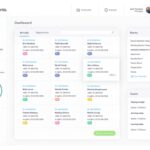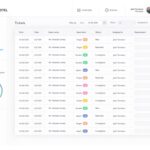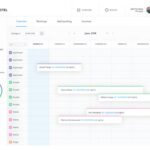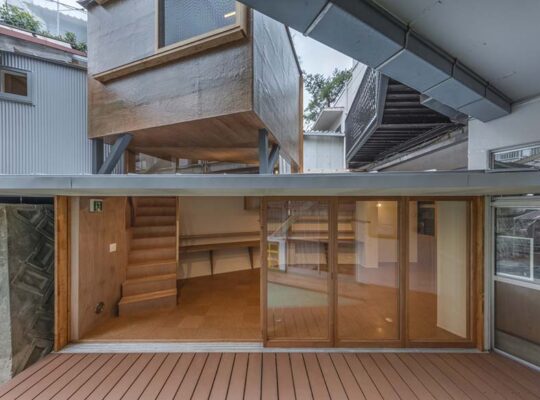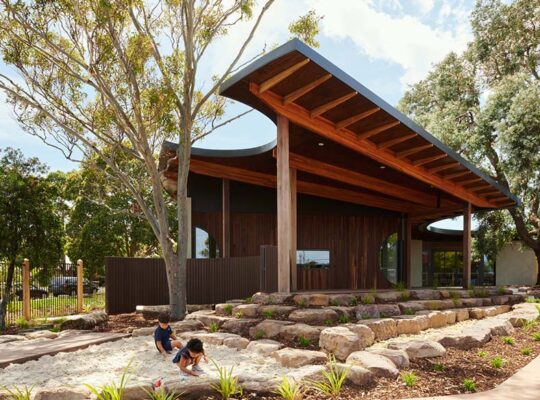Introduction
Booking hotel accommodations has become increasingly convenient with the advent of hotel booking apps. These platforms streamline the process of finding and reserving rooms, making it easier for travelers to plan their stays. In this article, we delve into the best practices for developing a hotel booking app and explore various business models prevalent in the hospitality industry.
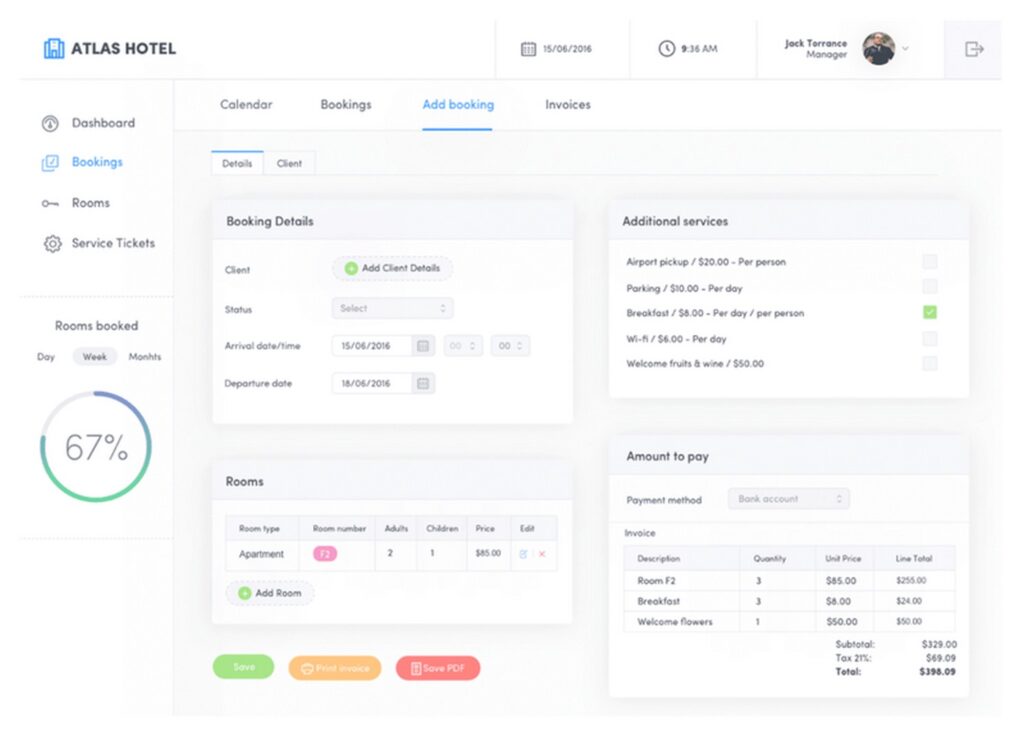
Hotel Booking Business Models
Merchant Model
Under the merchant model, hotels sign contracts with booking platforms to allocate a certain number of rooms. Booking platforms then sell these rooms to guests, retaining a portion of the revenue as commission. Expedia is a notable example of a company employing this model, offering rooms across a vast network of hotels worldwide.
Aggregator Model
The aggregator model aggregates hotel listings from various online booking services, allowing users to compare prices and amenities before redirecting them to the booking platform of their choice. Booking.com operates on this model, earning commissions for successful bookings.
Advertising Model
Similar to the aggregator model, the advertising model displays listings from multiple hotels. However, revenue is generated on a pay-per-click basis, with platforms earning fees for directing users to hotel booking pages. TripAdvisor exemplifies this model, offering both free and paid listings for hoteliers.
Dedicated Model
The dedicated model involves developing a custom app exclusively for a single hotel or chain. These apps offer tailored services such as concierge assistance and loyalty programs. Hilton is a prime example of a hotel chain utilizing this model to enhance customer experience.
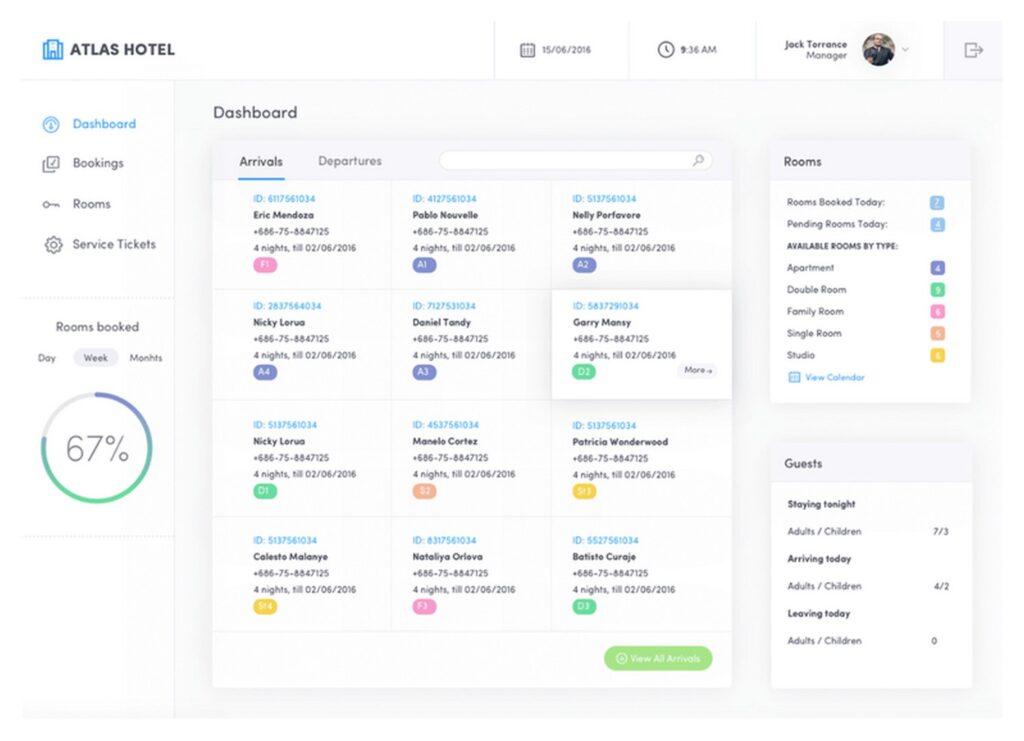
Types of Hotel Booking Applications
Meticulous Planners vs. Spontaneous Planners
Hotel booking applications cater to both meticulous planners, who book accommodations well in advance after thorough research, and spontaneous planners, who seek last-minute bookings. Applications like Expedia target meticulous planners, while platforms like HotelTonight serve spontaneous planners by offering discounted last-minute bookings.
Unique Value Propositions
- Low-Cost Bookings: Platforms like HostelBookers cater to budget-conscious travelers, offering affordable accommodations in hostels and budget hotels.
- Free Stays: Couchsurfing allows users to stay with locals for free, fostering cultural exchange and budget-friendly lodging options.
- Home Swapping: Applications like Holiday Swap facilitate home exchanges between travelers, offering affordable accommodations in various destinations.
- Short Stays: Services like Dayuse.com provide hotel rooms for short durations, catering to travelers seeking temporary accommodations between activities.
Core Features of Hotel Booking Apps
Essential Features
- Hotel Search and Reservations: Users can search for rooms based on location, dates, and preferences, facilitating quick and easy bookings.
- Filters: Allows users to refine search results based on price, rating, and other criteria, enhancing the browsing experience.
- Personal Accounts: Enables users to track bookings, discounts, and preferences, fostering personalized interactions.
- Room Previews: Provides visual representations of rooms through images or virtual tours, aiding in decision-making.
- Notifications: Notifies users about booking details, promotions, and check-in/out reminders, enhancing user engagement.
- Payment Gateway: Facilitates secure online payments through various payment methods, ensuring seamless transactions.
- Settings: Allows users to customize language, currency, and notification preferences for a personalized experience.
Nice-to-Have Features
- Flight Search and Ticketing: Integrates flight booking functionalities, offering a comprehensive travel booking experience.
- Car Rental: Enables users to rent vehicles for transportation, enhancing travel convenience.
- Recommendation Engine: Provides personalized recommendations for attractions and events, enriching the user experience.
- Analytics: Offers insights into user behavior and preferences, aiding in marketing and business strategies.
- Interactive Floor Plans: Provides interactive maps of hotels, helping users navigate complex layouts.
- Client Relationship Management (CRM) System: Assists hoteliers in managing guest interactions and preferences, improving customer service.
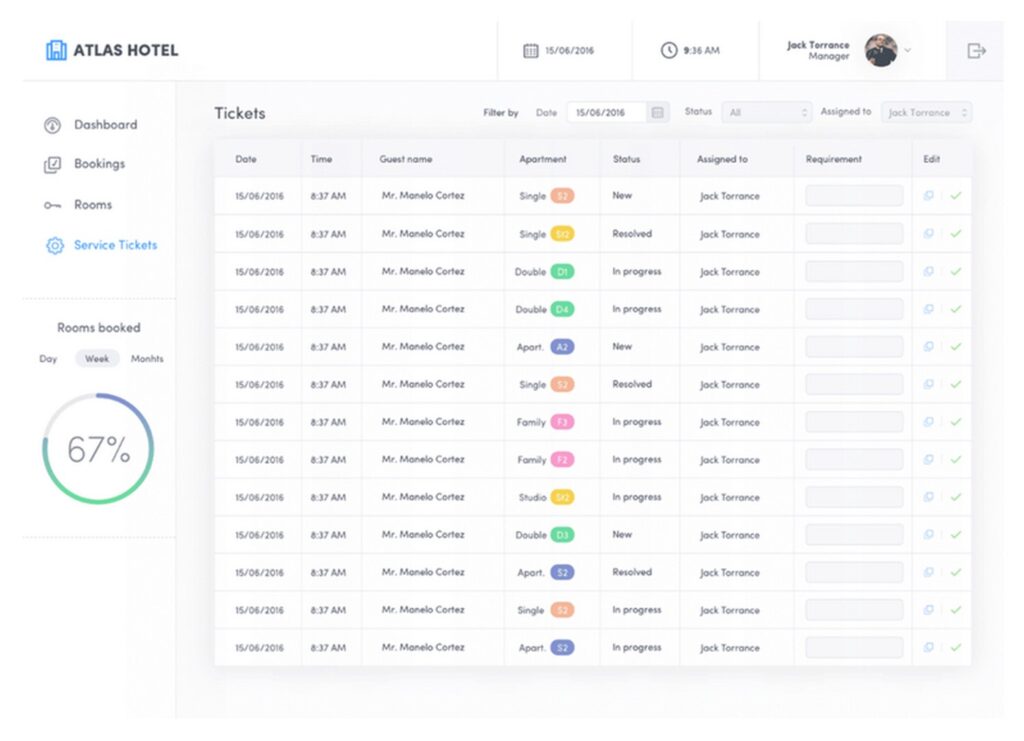
Hotel Booking Website Development: Technical Tips
- Utilize ready-made solutions and APIs for booking functionalities, reviews, location services, and payments.
- Incorporate APIs such as Expedia Affiliate Network, Olery Hotel Review Data, and Google Places for comprehensive features.
- Integrate popular payment gateways like Stripe and PayPal for secure transactions.
- Implement analytics tools like Firebase Analytics for tracking user behavior and performance metrics.
Estimating Development Costs
Development costs vary based on project scope, complexity, and technology stack. Hourly rates multiplied by development hours yield approximate costs. Thorough research, planning, and selecting the right development team are crucial for successful project execution.
Conclusion
Developing a successful hotel booking website requires careful planning, research, and execution. By understanding business models, user preferences, and technical requirements, businesses can create robust platforms that cater to diverse traveler needs. Embracing best practices and leveraging technological advancements are key to building competitive and user-friendly hotel booking applications.

